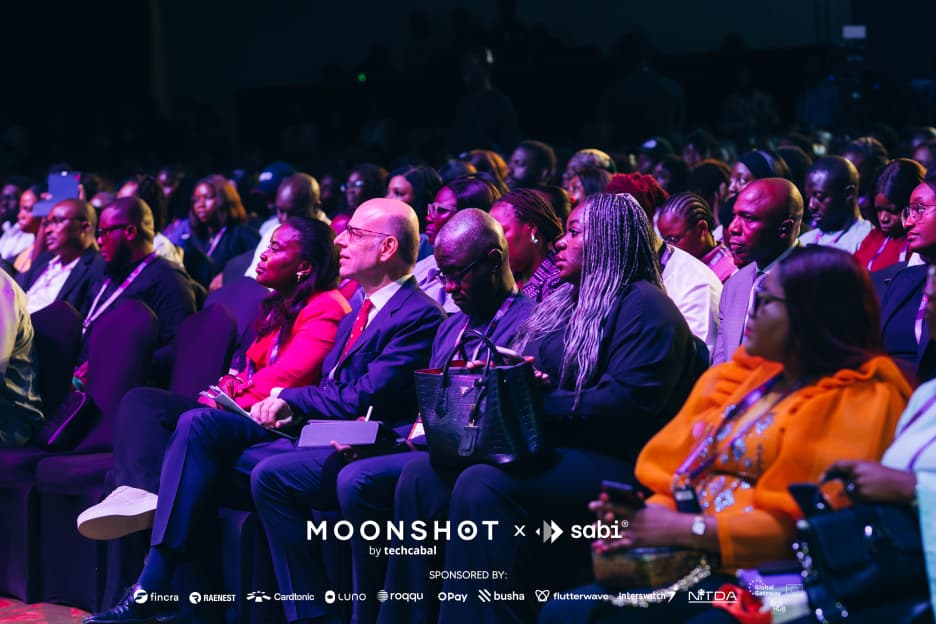







































Mayokun Owolabi: The force driving Flutterwave’s cross-border growth in 2025
 MSHOT
MSHOT
 WHEN
WHEN
 READ
READ
 SEND
SEND
Meet Mayokun Owolabi, Vice President, Global Expansion & Payment Partnerships, Anglophone Africa at Flutterwave, Nigeria, one of Africa’s leading financial technology companies.
As an IT professional with 14+ years of experience in key account management, partnerships, sales, project management, and business support, Mayokun is a profit improvement specialist with a track record of driving revenue growth through digital payments and financial technology product lines.
Her educational foundation is as rigorous as her professional expertise. She holds a Bachelor’s degree in Information Technology Management from the University of Johannesburg, South Africa, and an MBA from Edinburgh Business School, Scotland. Mayokun has also honed her expertise through programs from renowned institutions like Lagos Business School, Nigeria and Harvard Business School.

Her impressive credentials include certifications as a Business Data Analyst, Project Management Professional, and SAP MM Consultant, just to mention a few. Currently serving at Flutterwave, Mayokun spearheads the enablement of payment channels across Flutterwave’s largest market through strategic partnerships.
Her impactful contributions extend to her previous role as the Strategic Senior Key Account Manager at the Nigeria Inter-bank Settlements Systems PLC (NIBSS), where she played a pivotal role in industry initiatives that have revolutionised the payments landscape in Nigeria.
In 2025, a year defined by Flutterwave’s laser focus on profitability and sustainable growth, Owolabi’s role is not just about scaling; it’s about strategic execution. She is the force ensuring that every new corridor, partnership, and payment rail laid down is compliant, efficient, and locally relevant.
Read also: Meet the top 10 Nigerian women leading fintech growth in 2025
The consumer-first strategy: Insights from TechCabal’s Moonshot
During her panel discussion at the Moonshot by TechCabal event, Owolabi explained her role in strategic thinking in Flutterwave’s ambitious expansion.
“My job at Flutterwave is to lead that partnership and expansion effort in terms of where we go geographically and how we pay and who we connect to when we make those payments. So we establish those payments, partnerships with financial institutions, other fintechs, and necessary players in the industry,” she said.,
She underscored the fundamental truth of building technology across diverse African markets and the need for builders to understand consumers in the market they are building for.

From the consumer’s perspective, Owolabi argued, their demands are straightforward and non-negotiable, boiling down to three core principles: convenience, affordability, and speed.
“From a Flutterwave perspective, the demand that we’re seeing is consumers want convenience. They don’t want to know the back-end struggles. They don’t want to know how you’re going to connect from this partner to that partner. All they want to know is that it works,” she stated.
This convenience translates into products like the Send App and Flutterwave for Business, which power easy, convenient, and affordable payment methods, even enabling customers to pay for things like tuition fees outside of their home country in their local currency.
She continued, emphasising the need for cost-effectiveness, saying, “Also, they want it to be affordable. They don’t want to pay an arm and a leg just to receive payments or to make payments to someone else outside the country.”
Finally, there is the demand for instant value. She said consumers need speed. They want instant value, instant gratification. “I want everything to be done right now. So if I’m right here in Nigeria, I want to transfer to somebody in America, I want that person to receive it immediately.”
Trust, Value, and Innovation
For a technology company like Flutterwave, delivering on these three demands requires more than just code; it requires control and trust. Owolabi explained that making convenience possible hinges on having reliable systems and securing consumer trust.
“Convenience also comes with trust, and if they see that, okay, we’re licensed, like Flutterwave is the most licensed non-bank entity in Africa – that trust is also very important in terms of how customers view us,” Owolabi said.

The technical control, she revealed, is managed by ensuring internal infrastructure and connected partners operate with the same Service Level Agreements (SLAs), making the end-to-end flow seamless.
Addressing the cost of instant value, which is compounded by charges from so many partners in the ecosystem, Owolabi offered a critical insight into affordability.
“What we’ve observed is that consumers will pay for value as long as what you’re delivering is valuable, as long as the product is valuable, they will pay for it,” she said.
Mayokun Owolabi is a crucial connector and a strategic visionary, making her one of the most impactful female leaders shaping the future of African e-commerce.
Read also: Women run 35% of Nigeria’s informal businesses but earn the least – report

